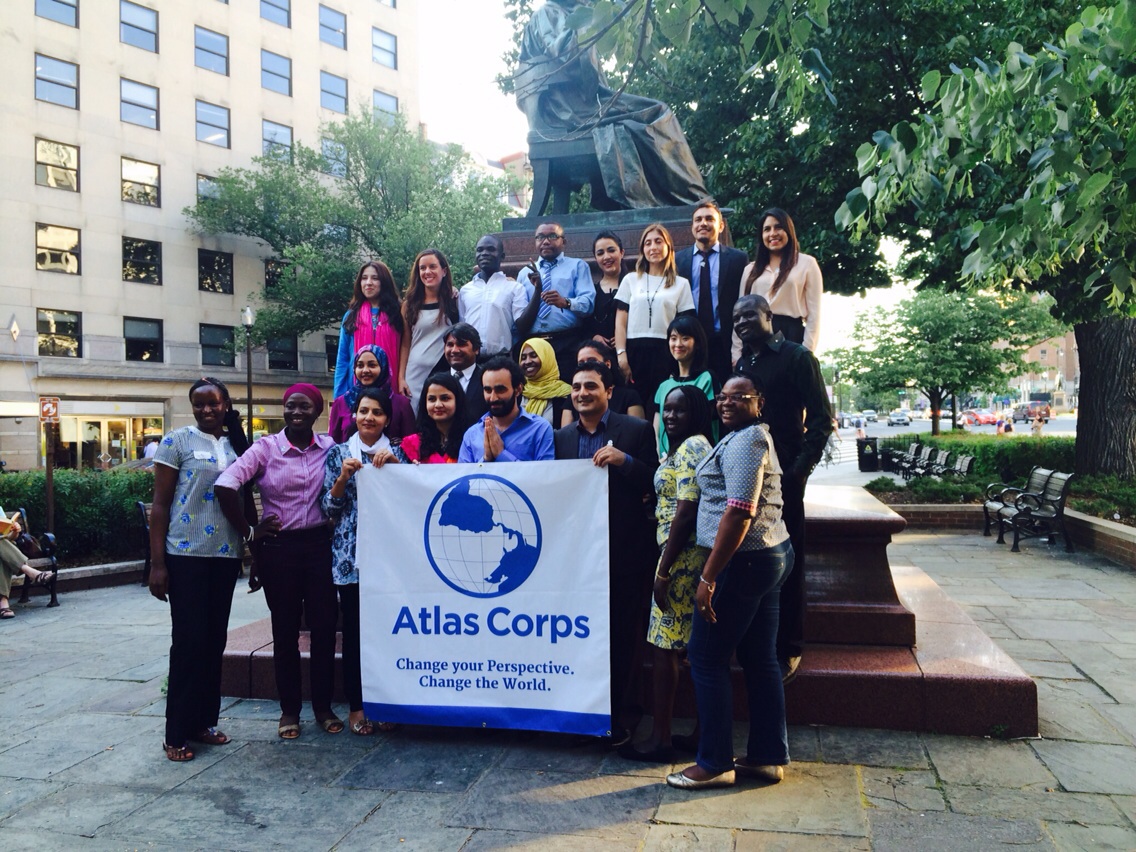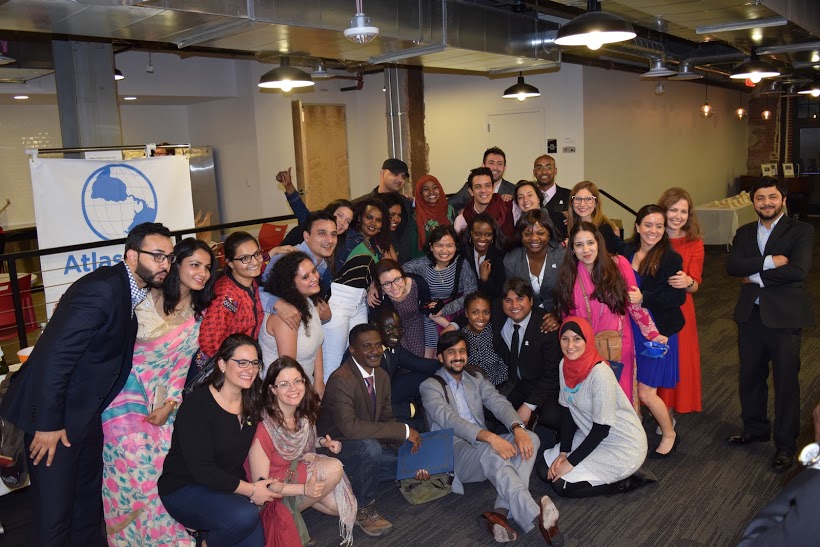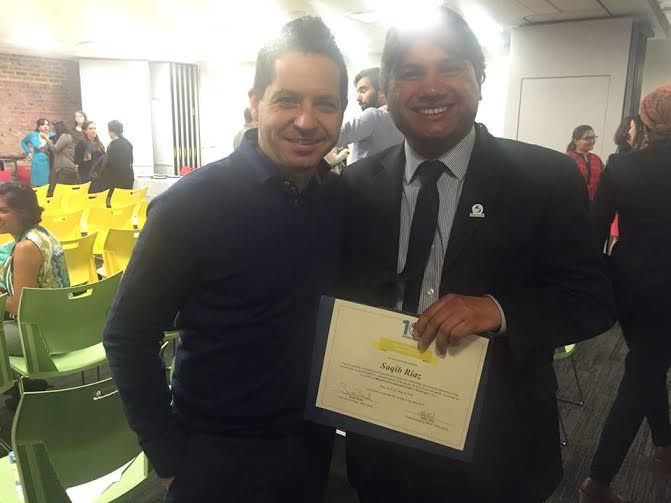The provision of human rights is critical to maintaining peace and harmony within societies, countries, regions and all over the world. It is a broad term and not limited to popular issues like minority rights, equality and justice. In most cases, many people are unaware of their constitutional, political and consumer rights due to a lack of awareness in the developing countries. It is quite common to overlook this fact when it comes to educating people about their rights due to either a lack of will or insufficient resources. If we deeply analyze the root-causes of any single social issue, we will find out that it stems from the systematic errors that need to fixed by either introducing structural reforms or by coming up with a complete overhaul to make the system work efficiently.
Four years back in Pakistan, I switched my profession from mainstream journalism to social sector because I wanted to contribute something more substantial to the society than just reporting and highlighting problems. At that time, I had realized that coming up with solutions to problems and helping people in general and public officials in particular is more important than raising problems. The political structures in Pakistan require substantial reforms to improve the performance of governance institutions that decide the fate of people, sometimes without considering ground realities. Before coming to the U.S., I was associated with a nonprofit – Free and Fair Election Network (FAFEN) – that can be attributed for advancing the impending agenda of constitutional and legal reforms in Pakistan by empowering citizen groups, building civil society networks and assisting political parties. From my academic knowledge, I always knew that a fair and just system is a must to make things better, and this is how the West and the U.S. achieved success.

Once Mark Twain said “actions speak louder than words, but not nearly as often.” It is one of the mottos of my life, the other being “honesty is the best policy.” Choosing to come to the U.S. for a yearlong professional exchange program – Atlas Corps – was not an easy decision when it comes to leaving your career and family. I was making a difference in Pakistan each day by identifying systematic problems in the governance and election systems and putting forth viable solutions to improve the efficiency of the system. However, I wanted to see how the American system works and why it is more efficient than developing countries. Living in a free society and transparent system not only gave me a firsthand experience of witnessing the benefits of an efficient system but also think about ways to replicate it back home. Since I served at Meridian International Center, one of the leading nonprofits based in Washington, DC, Meridian is a non-profit that promotes international understanding through the exchange of people, ideas, and the arts.
Meridian offers a wide array of outreach, exchange, and arts programs. Meridian promotes dialogue among people of all ages about global issues, connect professionals from different countries and enrich the cultural perspectives of audiences across the United States and abroad. Serving at Meridian not only increased my understanding and importance about international exchange programs but I also learnt about the U.S. political system as an international professional, a beneficiary of exchange programs. Some of the new areas that I worked on included leadership development, entrepreneurship, communications, social media, and marketing and branding.
Though Islamabad is the Capital City of Pakistan but we don’t get enough chances to meet people from other nationalities to exchange ideas about social issues. In DC, I had the opportunity to meet American people, and fellow fellows and nonprofit professionals from Africa, Middle East, Europe, South America, Southeast Asia and other South Asian countries like India, Afghanistan, Bangladesh and Nepal. This networking opportunities helped me understand ground realities to know how other countries are tackling social and political challenges, and how Pakistan can benefit from their experiences and solutions. Being part of a global network of 500 Atlas Corps professionals from 75 countries is also a big achievement as it is a way to connect civil society organizations and professionals, and empower citizen networks to work collectively for contributing to international development.
Looking back at the last year, I feel glad that I made the right decision to come to the U.S. where apart from professional experience I took a deeper insight into my personal life and career goals. Living abroad in a different society with people from diverse ethnicities, regions and religions made me more aware of myself and other people’s perspective about Pakistan and its people. Usually people are faced with mid-age crisis around 30s, and they are unsure of their future and sometimes change their profession to be certain about themselves. I also passed through this phase some time back but now I have realized that I am on the right path as I am very passionate about improving the state of human rights in Pakistan, and I really enjoy doing advocacy-based projects that aim to improve the state of rights. Through this fellowship, my areas of interest have expanded and I feel the need to work on promotion of laws pertaining to countering violent extremism, gender-based violence and promoting peace and harmony in Pakistan.

Two months back, I got a job offer from my previous employer – Free and Fair Election Network (FAFEN), a network of 42 civil society organizations that works to promote reforms in election system and governance structures in Pakistan. I accepted it as I was offered a better position to lead an advocacy-based project which aims to promote voter registration and political rights of women from religious minorities in Pakistan to increase their participation in the electoral process. I also attribute this better employment position to this international experience as it can be seen through my employer’s intention of capitalizing on my professional growth in DC, in terms of fundraising and improving communication channels for greater and effective public outreach.
My country really needs people who can give and implement sustainable and long-term solutions to fix loopholes in the system so that it can become more inclusive, transparent and just. Since brain drain is not the purpose of this fellowship program so I am very excited about going back to Pakistan to share my experiences with my family, friends and colleagues to give them a new perspective about the American people and society. I also used this experience to share ground realities about Pakistan with other people, and remove common misconceptions portrayed by the media. I feel more connected with myself and people around the world because of this professional and cultural exchange, and a much confident person and professional having acquired a different skillset that is going to give me an added advantage in my career.

















